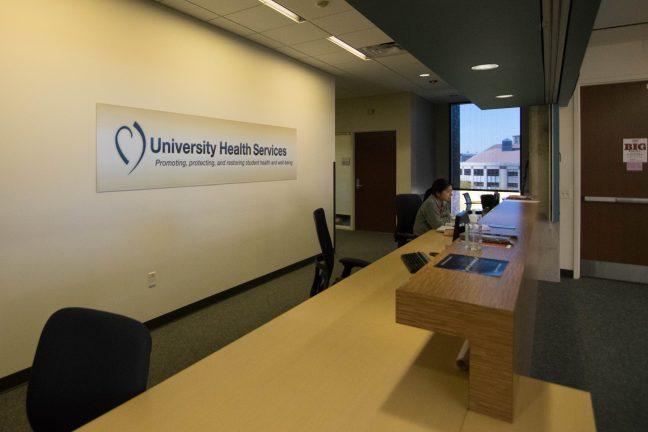Working under extreme stress with disrupted sleep schedules, interpersonal relationships, eating and exercise habits — not to mention the distance many students are from strong support systems — college students are reported to be at a significantly higher risk for a multitude of mental health issues.
Mental health specialists are even calling it a mental health crisis, with suicide rates among young adults almost tripling since the 1950s — to the point where it is now the second most common cause of death among college students, according to data from the American College Health Association (ACHA).
A study published in Depression and Anxiety, based on 67,000 college students from more than 100 universities, reports one in five students have had suicidal thoughts — not to mention the 9% who have attempted suicide and the 20% who have reported self-injury — along with the multitude of reports including a rise in other critical mental health crises like anxiety, eating disorders, obsessive-compulsive disorders, post-traumatic stress disorders and many more.
So, as suicide rates increase and COVID-19 makes mental health resources even harder to access, we must ask if UW is actively promoting the importance of mental health and mental health resources on its own campus community?
While it’s clear UHS actively promotes their counseling resources, along with the multitude of other mental health-related programs through constant emails and social media posts, there still seems to be a disconnect present between their activism and students actively seeking and connecting with these resources.
The question is, why is this disconnect still present even with all of UHS’s effort? And the answer to this question is quite obvious.
Historically, UHS has been open about the fact their mental health services are limited. While they offer over-the-phone initial treatment, followed by an appointment with a care-provider, their website directly states if “longer-term, or open-ended services” are needed to best address a student’s concerns, outside care may be recommended.
As of right now, UHS offers UW students only a limited number of counseling sessions, including up to 10 sessions in a calendar year and up to 20 sessions throughout the entirety of the student’s degree.
While some students have found success even with these limitations, other students have been left feeling as though they have no serious support and treatment options available on campus.
They feel as though while the school supports and actively promotes seeking help for personal mental health crises, the school does not have adequate programs in place to carry out the treatment and care needed for such personal issues.
And sadly, these students are not wrong. The gap is obvious. The university has oversimplified and over compromised the rising mental health crisis present among UW students. This is obvious in the limited services offered on the campus.
“Effectively addressing [the health crisis] will require a range of large-scale efforts,” Executive Director of Penn State’s Center for Collegiate Mental Health Ben Locke said. “[These must be] aimed at helping the general student body successfully navigate the developmentally normative experiences of anxiety and depression common to this age group while also making more intensive treatment available to those in need.”
The UW campus must quickly learn how to adequately understand and deal with the complexities that come with having a diverse student body — specifically in terms of mental health issues — and the immense costs that come with implementing such services to care for this wide array of needs.
Jan. 22, UHS discussed this exact issue in a statement released in accordance with the UW campus, expressing the steps they are currently taking to re-examine their response to mental health crises and incidents on campus, all of which will be in partnership with the UWPD, UW Housing and the Dean of Students Office.
With less energy from ‘Zoom Exhaustion,’ UW needs to invest in their students
The primary goal of this partnership, as they established, is to improve and ensure the well-being and safety of students, de-escalate potentially high-stress situations and promote a shared commitment to “diversity, equity and inclusions.”
UHS believes an initial response from campus mental health professionals with regard to future incidents — specifically in the dorms — would allow those experiencing a mental health crisis the appropriate assessment and access to the level of care required.
It’s an opportunity and a step in the right direction to closely integrate mental health professionals into mental health crises situations, within specifically the dorms, in order to better serve the student body, UHS Director of Mental Health Services Sarah Nolan said. “[This] includes providing students a broader choice of options that ensure their physical safety and emotional well-being.”
This upcoming collaboration is a critical step when it comes to UW’s new agenda in pushing for more collaboration directly between students and UHS mental health care professionals.
As many mental health-related incidents occur in the dorms and residence halls on the campus, as supported by UWPD data, this collaborative effort opens an entire new avenue for mental health care professionals to do the job they are already trying to do. It allows for mental health professionals to be the first respondents in the case of mental-health related issues and crises in order to ensure students are getting necessary professional help and support, along with setting an agenda to further improve the programs currently offered on campus.
Most importantly, this critical step will prevent the university from continuing to overlook the mental health crisis facing young adults across the nation.
If you need professional help or are seeking mental health-related programs and counseling offered on campus, please visit https://www.uhs.wisc.edu/mental-health/ to see current services provided for free to all UW students.
Kayla Bell (kmbell4@wisc.edu) is a sophomore majoring in political science and journalism.


